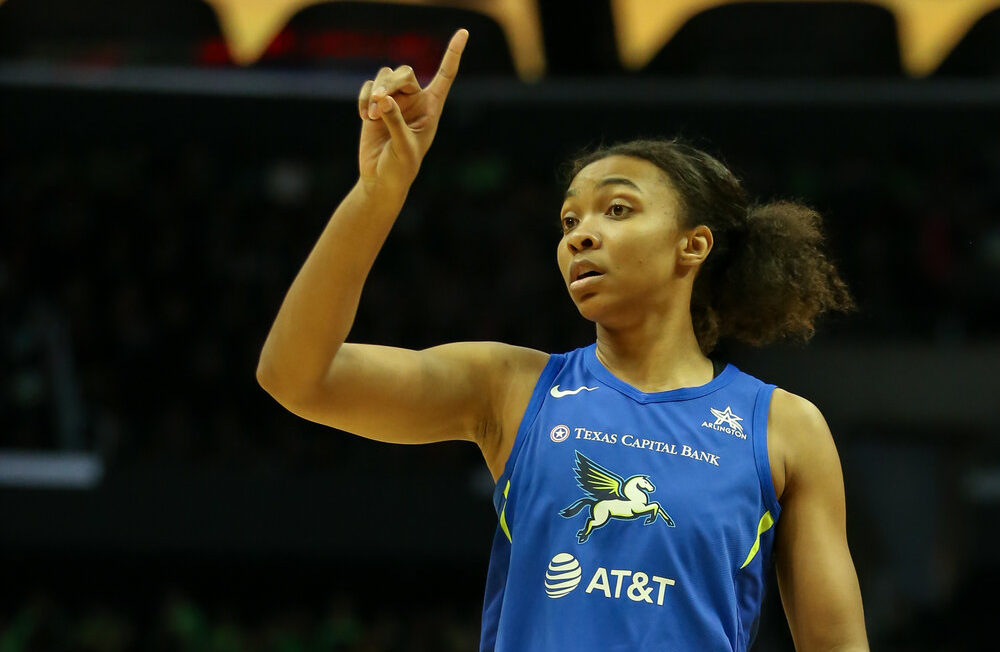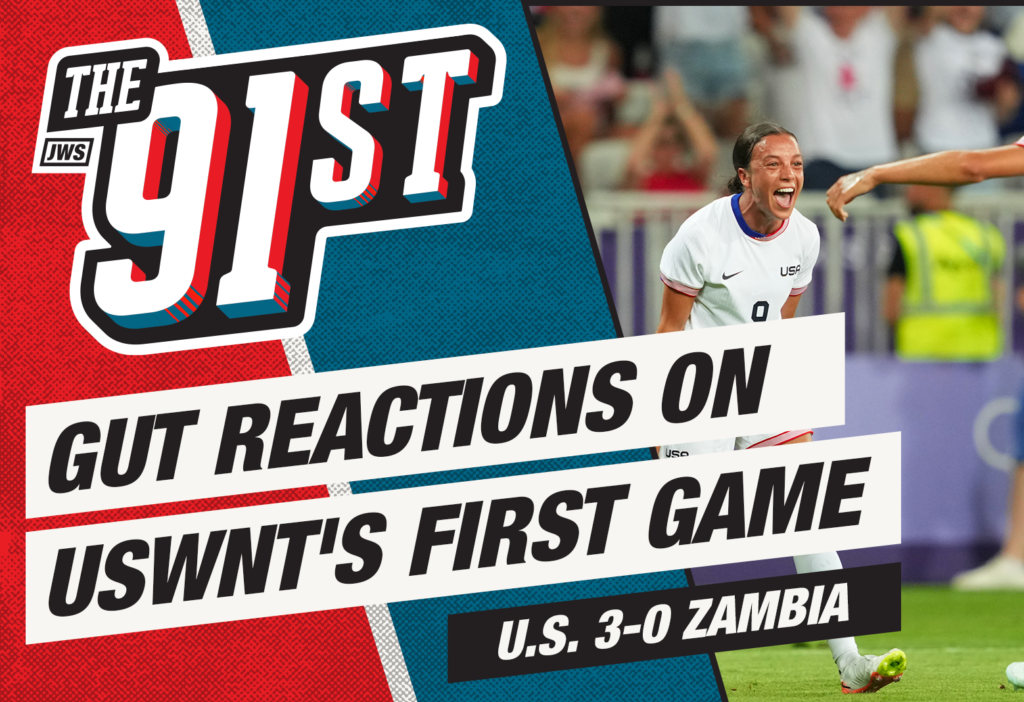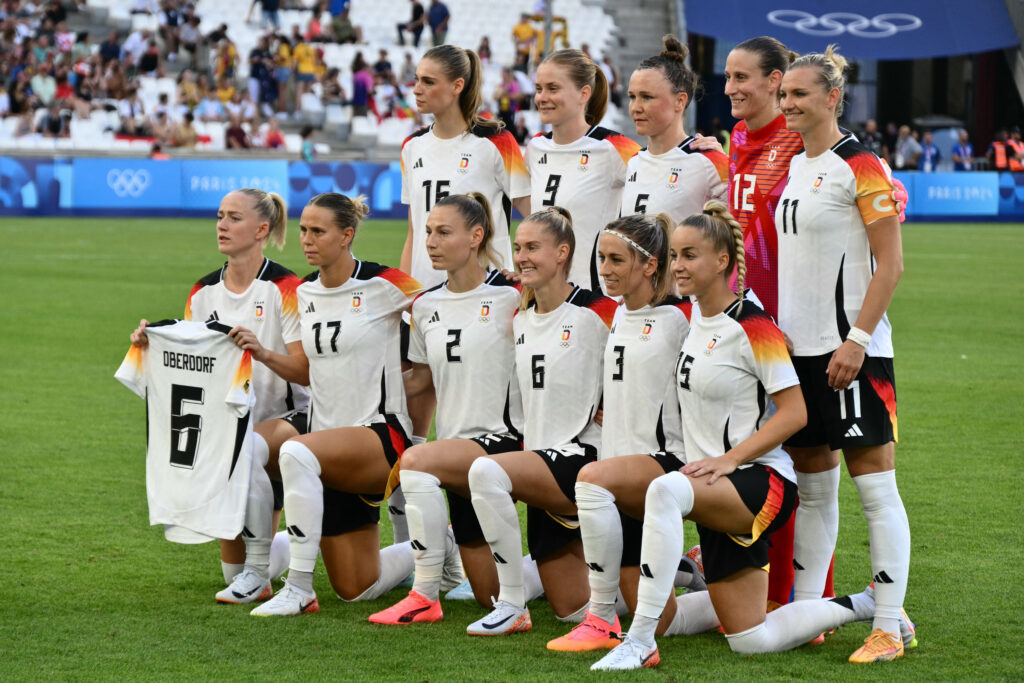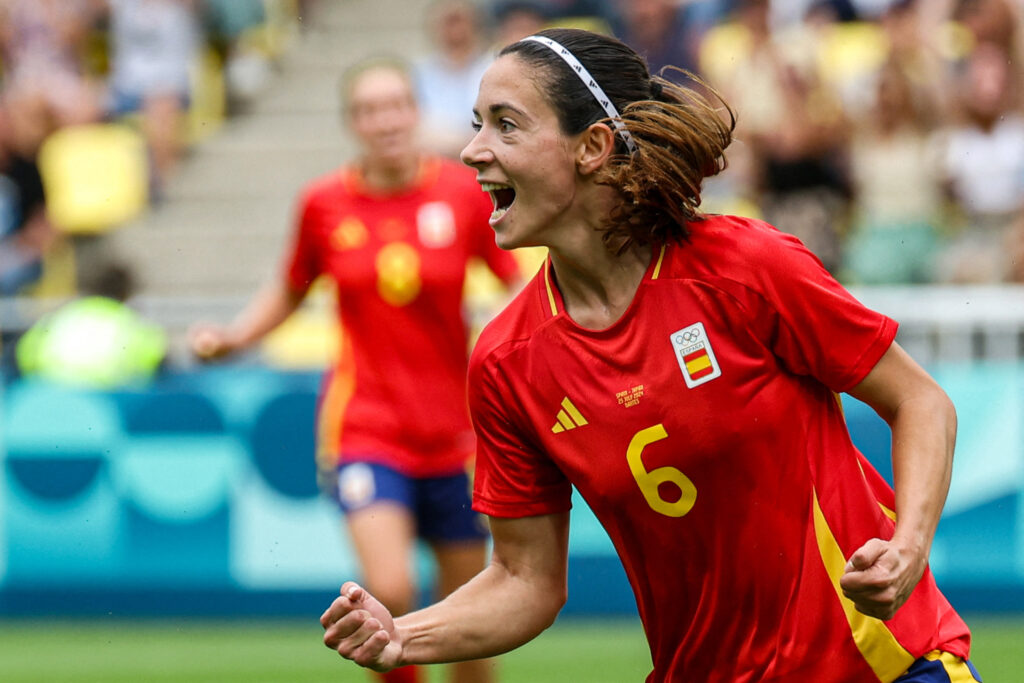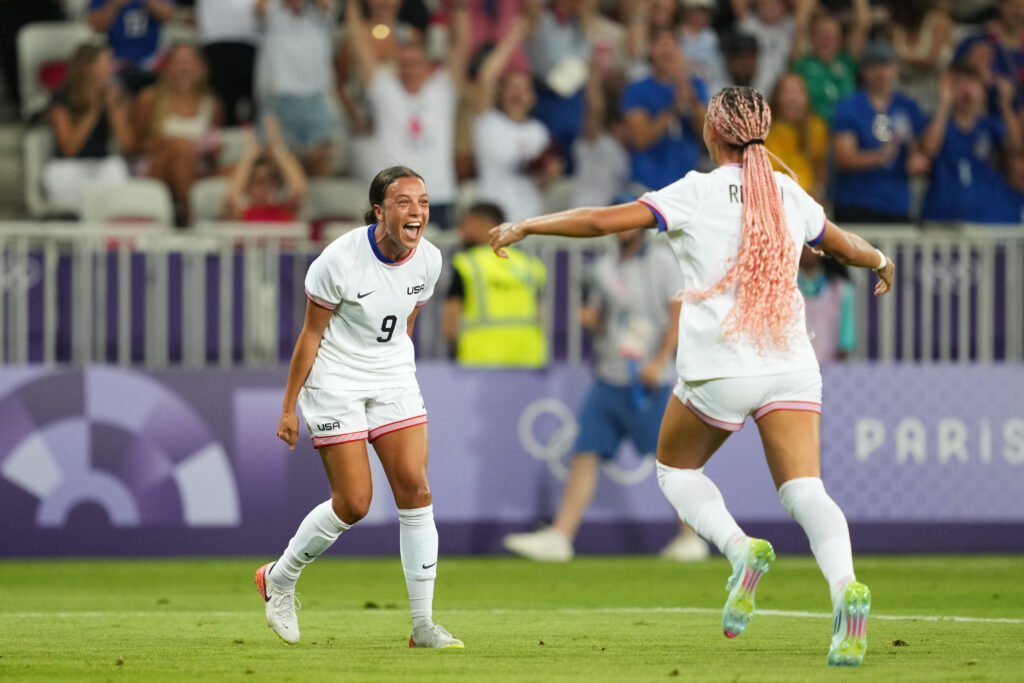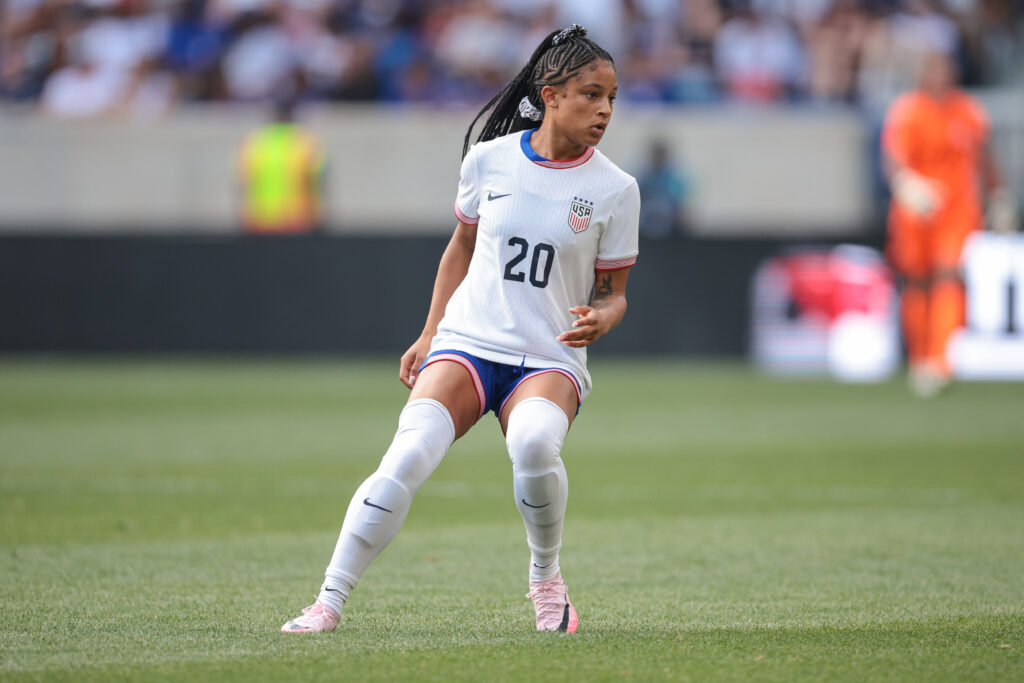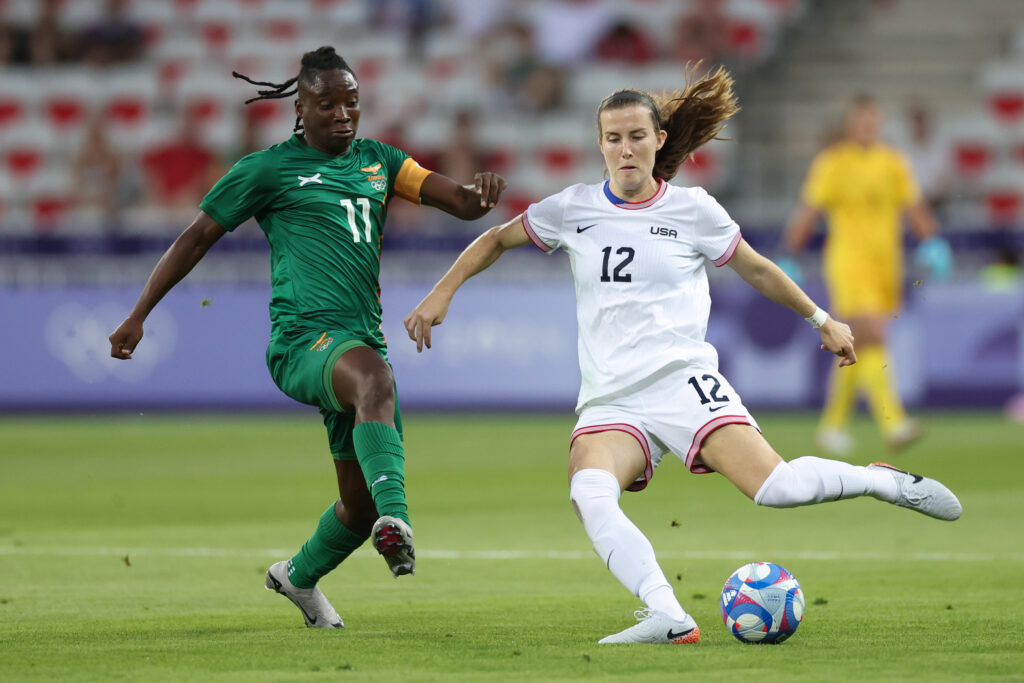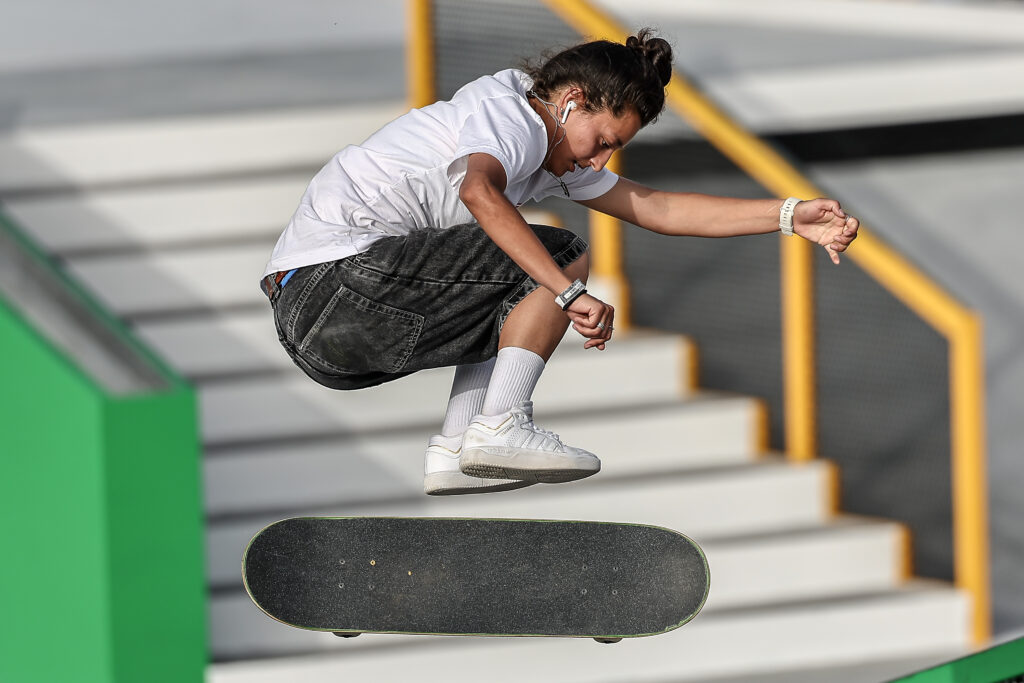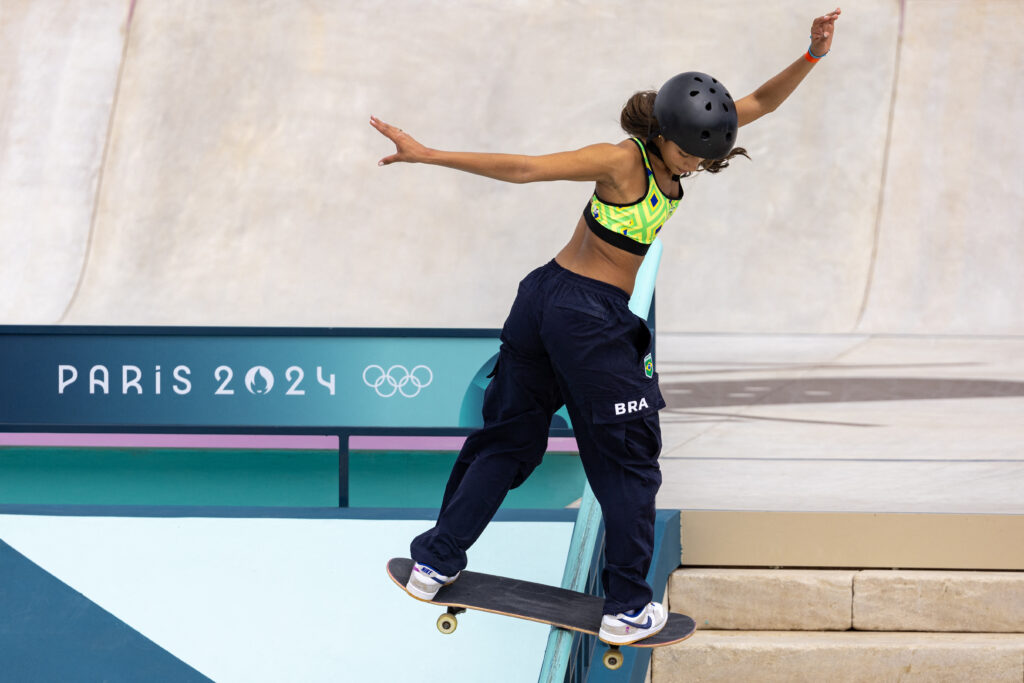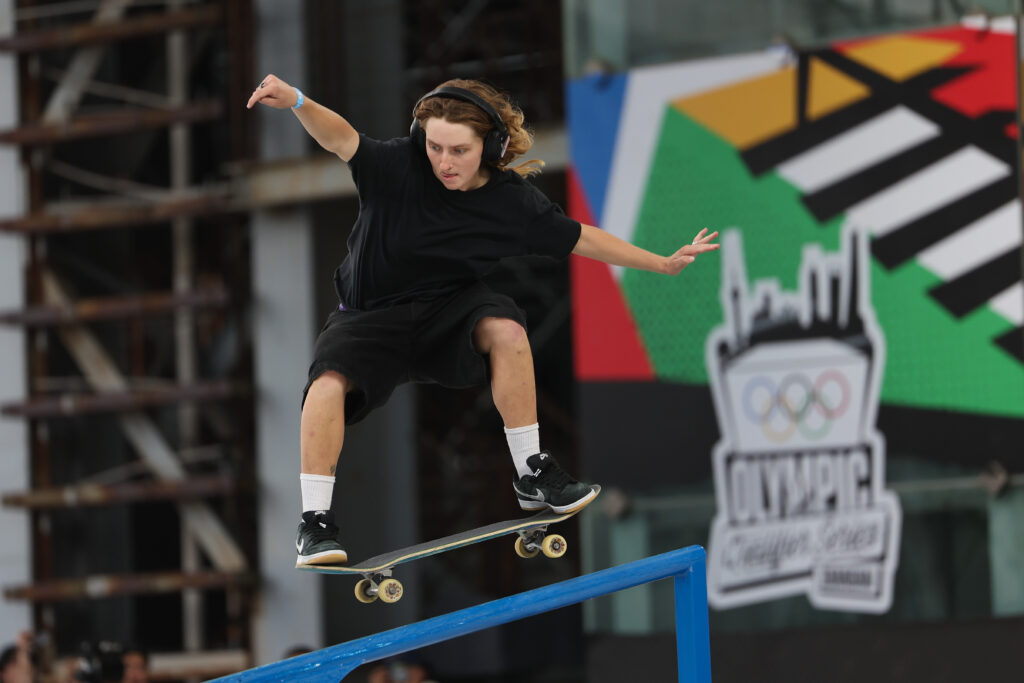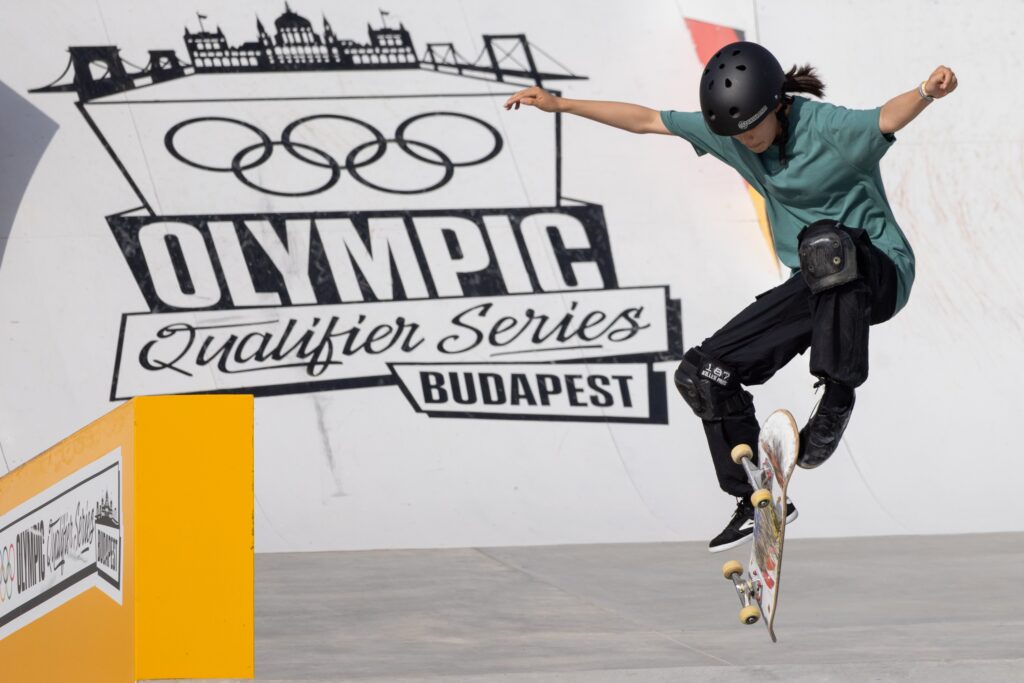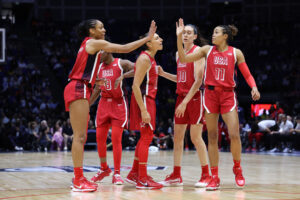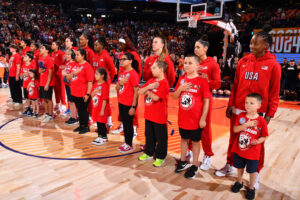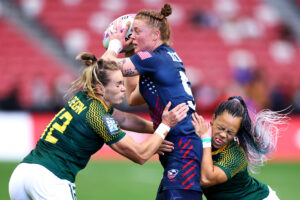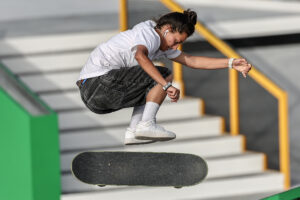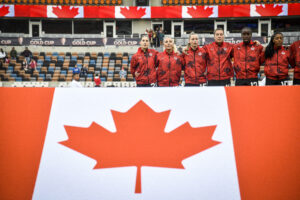Imani McGee-Stafford is a professional basketball player who recently announced her decision to take a two-year hiatus from the WNBA in order to pursue a law degree from Southwestern Law School in LA. A University of Texas graduate, McGee-Stafford was drafted 10th overall in the 2016 WNBA draft by the Chicago Sky. Named to the WNBA All-Rookie team, McGee-Stafford went on to play for both Atlanta Dream and the Dallas Wings. Below, she discusses what inspired her to return to school and how she handled her earlier transition from college to the pros.
When did you first become interested in pursuing a degree in law?
I started thinking about law school after Dr. Ford’s testimony in the Brett Kavanaugh hearing a couple of years ago. The fact that we would feel comfortable putting someone accused of these things in the highest job in the land was just crazy to me. Then couple that with Trump’s sexual assault allegations, and it just showed me that we really don’t care about women as a country. And that’s when I started thinking, how can I help change that? The only route that made sense to me was being a lawyer.
Do you think that your basketball career is over or do you hope to return to the league after you graduate from law school?
We’ll see what life has. But my goal is to take a two-year hiatus, which will probably end up being one, because I don’t think we’re going to have a season this year, then come back and play for a couple of years and then retire and do law.
What kind of message do you think pursuing a degree in law sends to your fans who look up to you as an athlete?
I think that because athletes are notably great at their sport, people believe that we can only be great at one thing. It is really hard for people to picture athletes doing anything other than athletics, because that is usually what they’re best at. For me, I’m totally an idealistic child when it comes to the fact that I really want to see if I can have it all. I want to live like five lives, because I just want to do so much. Hopefully fans that look up to me understand that you can do whatever you really set your mind to. I mean, I got into law school with a full scholarship. I had to work really hard for it, but it’s possible.
Looking back, did you know that you wanted to pursue basketball professionally when you were playing at Texas?
Not until my last two years. It just became more tangible towards the end of my college career. For one, I always used basketball as a means to an end. I wanted a free education and to major in accounting, and Texas has the number one accounting program in the country. That was what I focused on when picking a school. Also, I didn’t really think I was good enough and I wasn’t a “sports-first” type of person. But then, my junior year, I started off the season with an injury and I pretty much spent the whole year on what felt like one leg. But I still did really well and won some Big 12 accolades. That’s when I was like, “Wow. Maybe I can keep hanging and go far with basketball.”
Did you follow the WNBA at that point and were there any teams that you were hoping to get drafted by?
I’m different because my mom played for the WNBA, so I’ve kind of been around it my entire life. I wanted to go to Dallas, ironically, or San Antonio, because I was already in Texas and at that time was married to my ex-husband who had also gone to Texas. So I wanted to just stay close. Then if that didn’t happen, which it didn’t, I wanted to go to Chicago because I knew Pokey [Chatman] really liked me — she was the head coach at Chicago at the time. I wanted to be with whoever really liked me.
Can you remember your reaction and your thoughts when you were drafted?
Relief, probably, because it’s a really scary, nerve-wracking kind of situation as you’re waiting for your name to get called. It feels like two minutes takes forever to pass. You’re not in control, and you really don’t know where you’re going. So when I finally got drafted, it was mostly just relief, and I was excited, because I got to go to Chicago. I knew that Pokey really wanted me on her team.
What made your transition from college ball to the league so successful?
I think I was just well-prepared. Shout-out to my college coach and my family and friends. When I was getting interviewed before the draft, I talked to Dan Hughes, who’s now the coach of Seattle, but he was San Antonio’s coach at the time. He asked me a question, and it was super simple. He said, “What do you bring to the game every time you step on the court?” I don’t remember how I answered in the moment, but it was something I really thought about and took with me as I entered the league. To play at the WNBA level, you have to do something great and you have to consistently do it great, every day. Maybe you’re a scorer or maybe you’re just a rebounder. Whatever it is, you have to leave the college mindset of being a “do-it-all player” and figure out what it is you do great every day.
Some people are special and they can be that same player they are in college. But most players have to transition based on the new team they are playing with, and I think I was able to do that. What I bring every day is energy. I talk. I’m loud. I’m locked in. I’m a defensive presence and a rebounder. Defense is what I enjoy doing, and it’s what I’m known for doing. I’m going to bring you great energy, and I’m going to know the scouting report, up and down, every day. Regardless of who steps up in front of me, I’m going to be ready every day.
You have a very athletic family. You mentioned that your mom played in the WNBA, and your brother plays in the NBA. How much has your family’s experience with professional basketball impacted you as a player?
Heading into the league, it was helpful in terms of knowing what to expect. I had the benefit of asking some of the greats — Tina Thompson, Lisa Leslie, my mom — about what to expect and how to be successful. But ultimately, around my second year in the league, I figured out how to measure my own success. That helped alleviate a feeling of pressure, as I just acknowledged that I may never actually attain the success that my family has, but that doesn’t mean I’m failing.
What was it about your second year that helped you come to that realization?
My rookie year, I was starting. I was on the All-Rookie team. I was playing in the semifinals as a rookie. Then, the next season, my coach got fired, and I did not mesh well with the new coach at all. I went from having a significant role to not playing at all, even though I felt as though I was better than the other people in my position. That was when I had to figure out what success looks like for me. How can I measure something when it’s not really in my control? How do I take inventory of what I think my success is and make small, tangible goals, even though my playing time is out of my control? That’s when I learned to be my own judge.
Looking ahead, do you have a specific interest in terms of what type of law you’d like to practice?
I am interested in civil litigation and public interest law. I want to be a research lawyer and help change laws around women’s rights and sexual violence. We need more women in the field. The people who make laws and policy advocate for what they know and for people who look like them. Unfortunately, there’s not a lot of people of color nor women of color in those positions. I want to get to that position so that I can help people like me.
